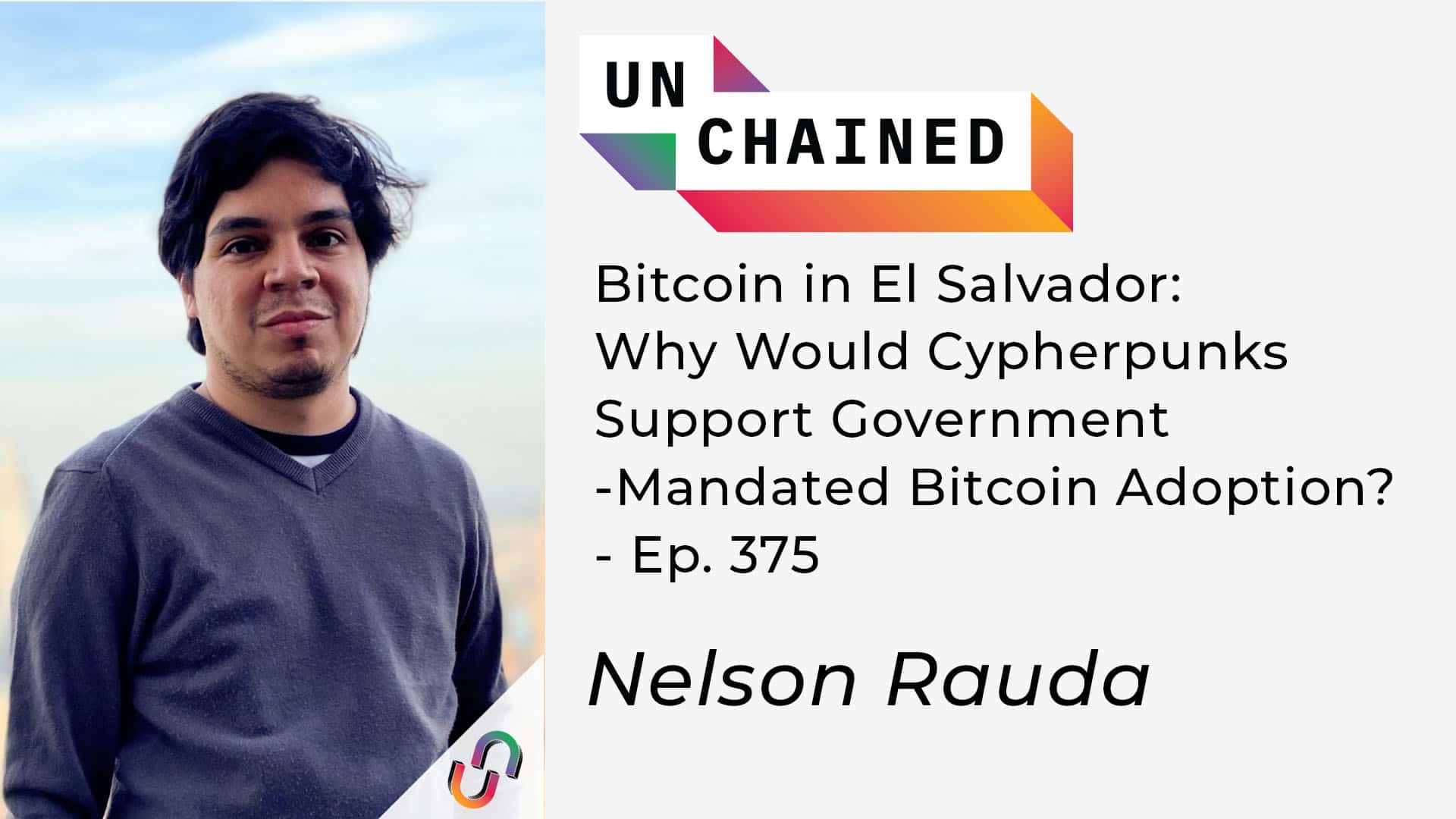Nelson Rauda, Salvadoran journalist for El Faro, comes to talk about the impact of Bitcoin in El Salvador, the needs of Salvadoran people, Bitcoin City and the Bitcoin Bond, and much more.
Show highlights:
- Nelson’s story and how he began covering BTC
- what kind of politician and president Nayib Bukele was before BTC
- what the financial reality was for Salvadoran people before the implementation of BTC
- the reasons for the high rates of unbanked people in El Salvador
- how Bukele changed the monetary policy with what Rauda says was very little discussion
- why Rauda believes the BTC law is not meant for Salvadorans, but instead is a PR stunt
- how people reacted after the announcement of BTC as legal tender, and how it resembled the dollarization of the economy in 2001
- how Nelson did not even understand BTC at the moment of the announcement and how he says there was not an effort from the government to educate the population
- whether BTC was successful in attracting investments and tourism, and how there’s no hard data about it
- why Nelson believes Bukele was trying to hide the scandals when he adopted BTC
- whether BTC has been used as a PR stunt
- why bitcoiners are enthusiastic about an authoritarian government adopting BTC as legal tender
- how Bukele might be undermining his own authority by adopting BTC, a type of money that is not controlled by a state
- whether the Chivo wallet is a surveillance tool
- why Nelson believes BTC does not represent a solution for the needs of average Salvadoran people
- whether the $30 dollar initial gift to download the BTC wallet was seen as just another subsidy
- the status of Bitcoin City and how Nelson believes it represents the most spectacular PR stunt from Bukele’s administration
- how the expensive prices of electricity in El Salvador make the country not the best place for mining
- the significance of Bitcoin Beach
- what the BTC bond is, what Bukele tried to achieve with it, and why it has been postponed
- whether El Salvador will default on its debt and what the impact of the BTC price has on the national finances and on how Salvadorans perceive Bitcoin
- how Nelson believes people in El Salvador do not have political freedom and how it contradicts the narrative of financial freedom that BTC aims to provide
- what Nelson thinks about Bitcoin and whether governments should adopt it as legal tender
Thank you to our sponsors!
Crypto.com: https://crypto.onelink.me/J9Lg/unconfirmedcardearnfeb2021Ava Labs: https://www.avax.network/
Nelson:
- Twitter: https://twitter.com/raudaz_
- NYT Opinion article: https://www.nytimes.com/2022/07/02/opinion/bitcoin-el-salvador-bukele-crypto.html?referringSource=articleShare
Bitcoin Law:
- PwC report: https://www.pwc.com/gx/en/financial-services/pdf/el-salvadors-law-a-meaningful-test-for-bitcoin.pdf
- Full law: https://freopp.org/el-salvadors-bitcoin-law-full-proposed-english-text-9a2153ad1d19
- BBC article – The IMF urges El Salvador to remove Bitcoin as legal tender: https://www.bbc.com/news/world-latin-america-60135552
- BTC as a Trojan horse: https://bitcoinmagazine.com/culture/bitcoin-is-a-trojan-horse-for-freedom
- Last BTC Purchase: https://decrypt.co/104275/el-salvador-president-nayib-bukele-more-bitcoin-after-losing-60m
- Washington post article on tourism attraction: https://www.washingtonpost.com/travel/2022/07/06/el-salvador-bitcoin-beach/?utm_campaign=wp_main&utm_medium=social&utm_source=twitter
- NYT Article on El Salvador’s bet: https://www.nytimes.com/2022/07/05/world/americas/el-salvador-bitcoin-national-currency.html
El Salvador:
- Research paper on El Salvador by the NBER: https://www.nber.org/papers/w29968
- The World Bank report on El Salvador: https://www.worldbank.org/en/country/elsalvador/overview
- El Salvador and the IMF: https://www.reuters.com/world/americas/el-salvador-finance-minister-says-possible-imf-deal-no-panacea-2022-07-14/
- CNBC on El Salvador Finances: https://www.cnbc.com/2022/06/25/el-salvador-bitcoin-experiment-not-saving-countrys-finances.html
- IMF report on El Salvador Finances: https://www.imf.org/en/News/Articles/2022/02/15/cf-el-salvadors-comeback-constrained-by-increased-risks
Bitcoin Bond:
- https://www.coindesk.com/business/2022/03/25/bitcoin-city-el-salvadors-dreams-for-utopia-on-hold/
- El Salvador postpones BTC bond: https://www.reuters.com/technology/el-salvador-postpones-bitcoin-bond-issue-expects-better-conditions-2022-03-22/
Bitcoin City:
Read the episode transcript here



